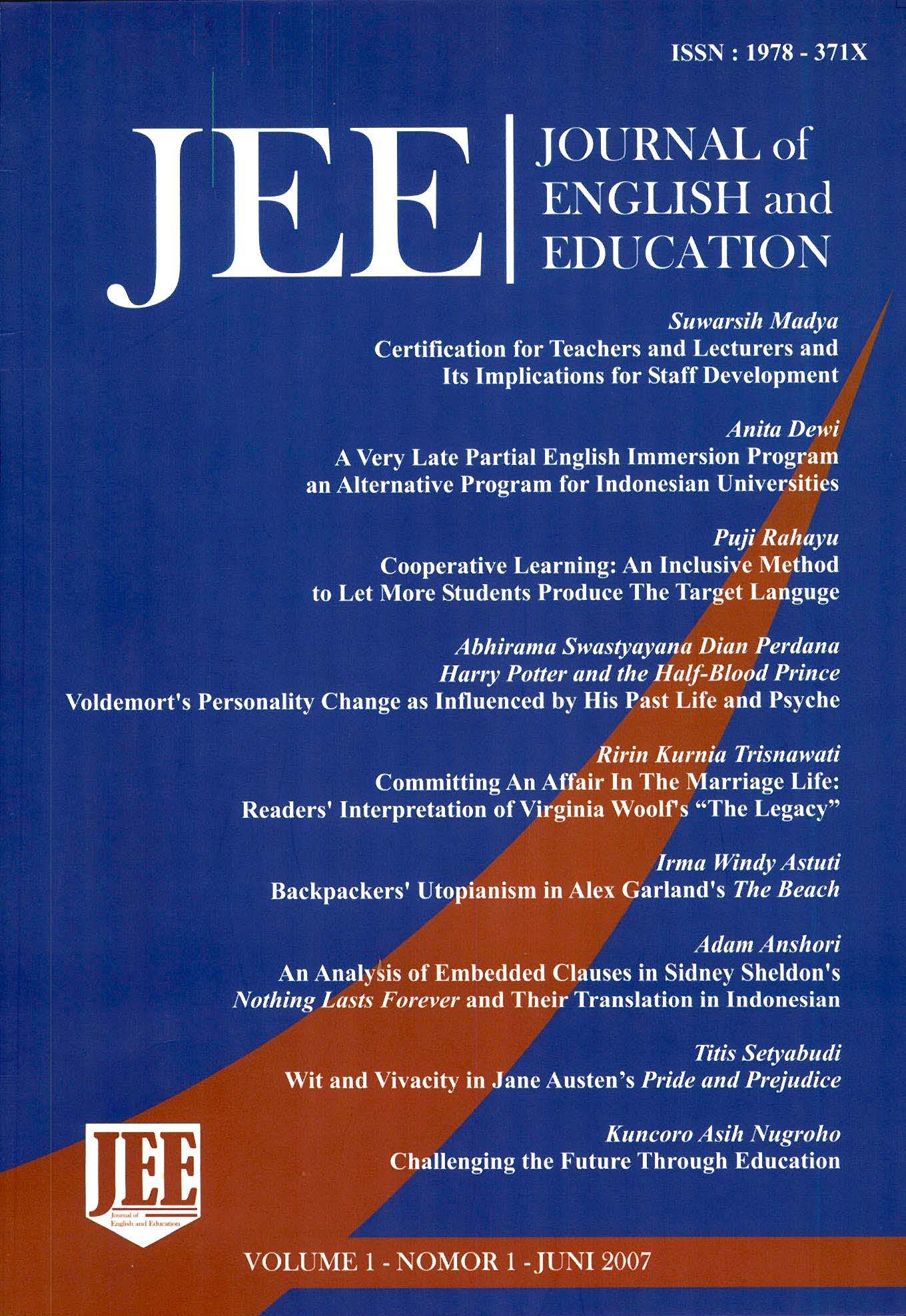Main Article Content
Abstract
This study focuses on analyzing the backpackers' utopianism in Alex Garland’s The Beach and the problem presented in this study is how is the backpackers’ utopianism presented in the novel. The study intends to identify utopianism that exist in the backpackers' community. The writers hopes that this study can give contribution to those interested in further analyzing the novel. In this case, the library research is used and the objective theory is employed as the basic principal of the analysis.
Having a desire to find and experience something unusual and different through travel is what drives many young western backpackers to Thailand with adventure on their mind. Unfortunately what they find is no more than just a dirty reality of many overrun tourist resorts instead of a tourist free tropical paradise they long. Existing among those popularized tourist resorts is apparently, the beach, known for its beauty and natural purity. The beach happens to be an improbable tale among backpackers and travelers. However, for some other backpackers, this beach does exist. Guided by quite a top secret map, three backpackers find their pristine beach on an unspoiled island of Thailand. Once there, they are convinced that they have discovered Eden, or at least their very own version of it. Wearied by many overrun tourist spots, and impressed by the beauty of foe beach, those backpackers decide to live on the beach area eternally and secretly. In, this secret community, those backpackers adapt to foe needs and pleasures of alternatives. Unfortunately those backpackers supposedly ideal beach life is unable to be perfectly realize due to the imperfection that they find there, or more to the point, the imperfections they find within themselves.
After, studying the backpackers utopianism, the writer can conclude that the backpackers’ notion of perfection upon an ideal place is in fact normal for it suggest the nature of humans as an imaginative creatures endowed with desire for perfection, especially reaction to their imperfect world. Aside from that, humans are, at the same time, likely to be considered absurd for being utopians those appear to be too exigent in demanding their particular version of ideal and thus, being less aware of the impracticability of his ideal. It is therefore to say that humans need to be sensible in idealizing their dreams. They must have complete knowledge and awareness of their own capability instead of blind faith.
Keywords
Article Details
Copyright (c) 2016 JEE, Journal of English and Education

This work is licensed under a Creative Commons Attribution-ShareAlike 4.0 International License.
Authors who publish with this journal agree to the following terms:
- Authors retain copyright and grant the journal right of first publication with the work simultaneously licensed under a Creative Commons Attribution-ShareAlike 4.0 International License that allows others to share the work with an acknowledgment of the work's authorship and initial publication in this journal.
- Authors are able to enter into separate, additional contractual arrangements for the non-exclusive distribution of the journal's published version of the work (e.g., post it to an institutional repository or publish it in a book), with an acknowledgment of its initial publication in this journal.
- Authors are permitted and encouraged to post their work online (e.g., in institutional repositories or on their website) prior to and during the submission process, as it can lead to productive exchanges, as well as earlier and greater citation of published work (See The Effect of Open Access).

